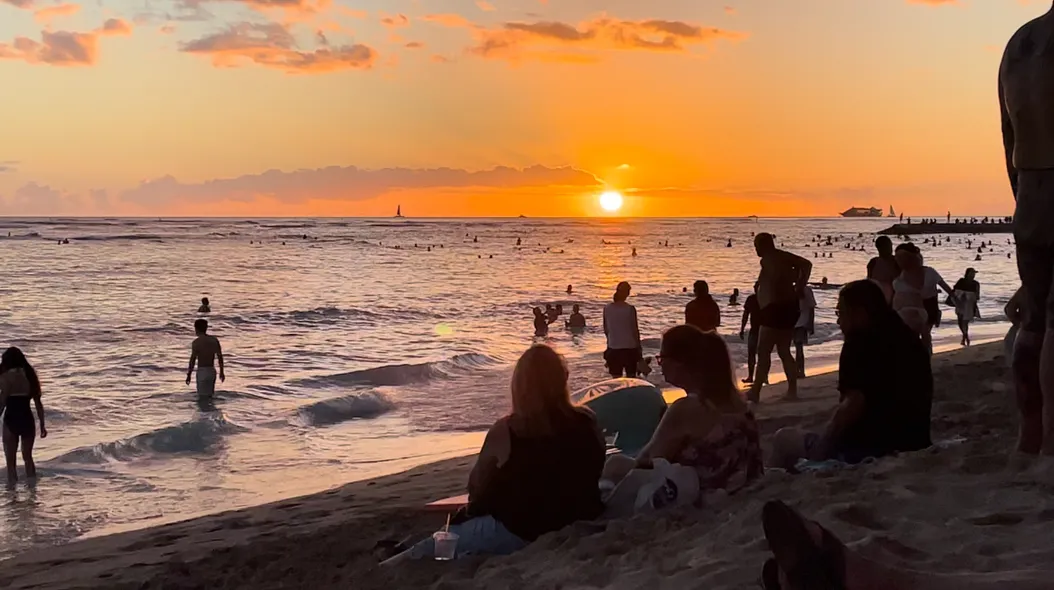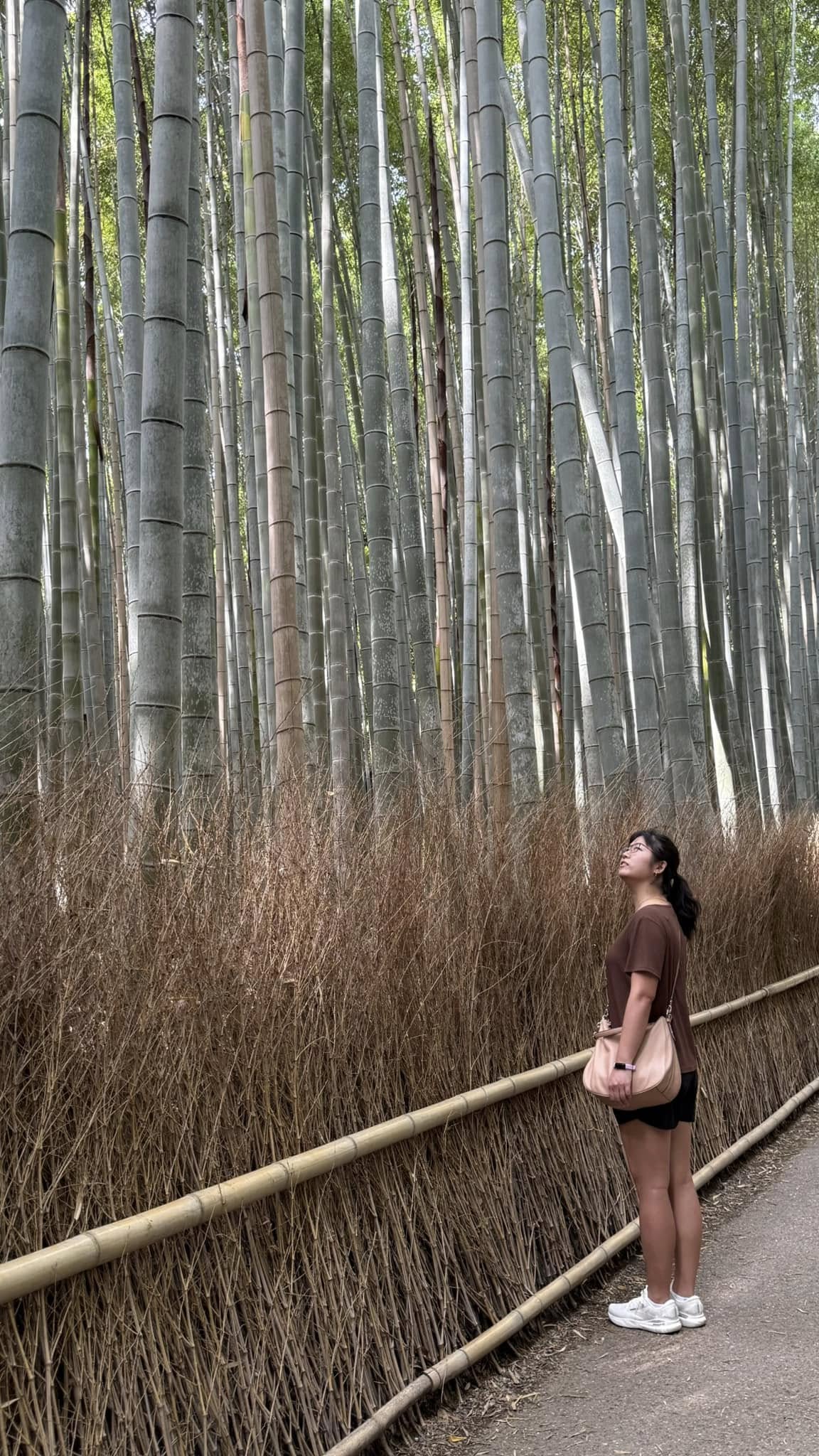
I went to Japan for the first time last month along with my husband, Albert, and several members of Albert's side of the family. It was our first international trip in around two years. We’d gone to Oahu back in October, and though the trip proved to be the change of pace that we so sorely needed at that time, our Hawaii trip had still felt a little too sad due to the loss of Baby 2 and all the concluded IVF madness to feel like a true vacation. My body was still in shambles at the time as well. This time, though, we were in a much better place both emotionally and physically.
And, boy, was Japan epic.
From sampling the entire world in one fair at the World Expo hosted in Osaka:
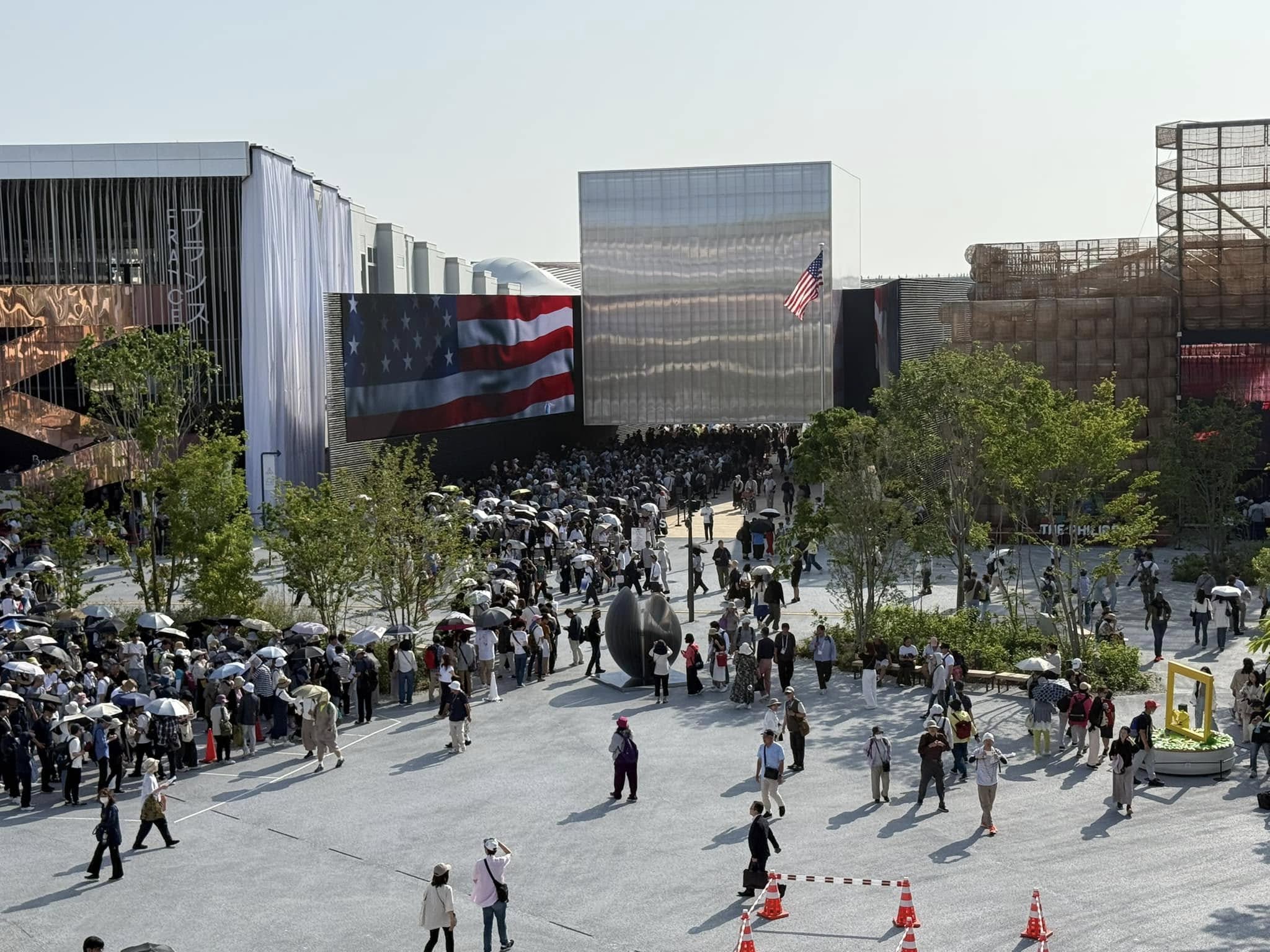
To dressing up in a kimono in Kyoto:
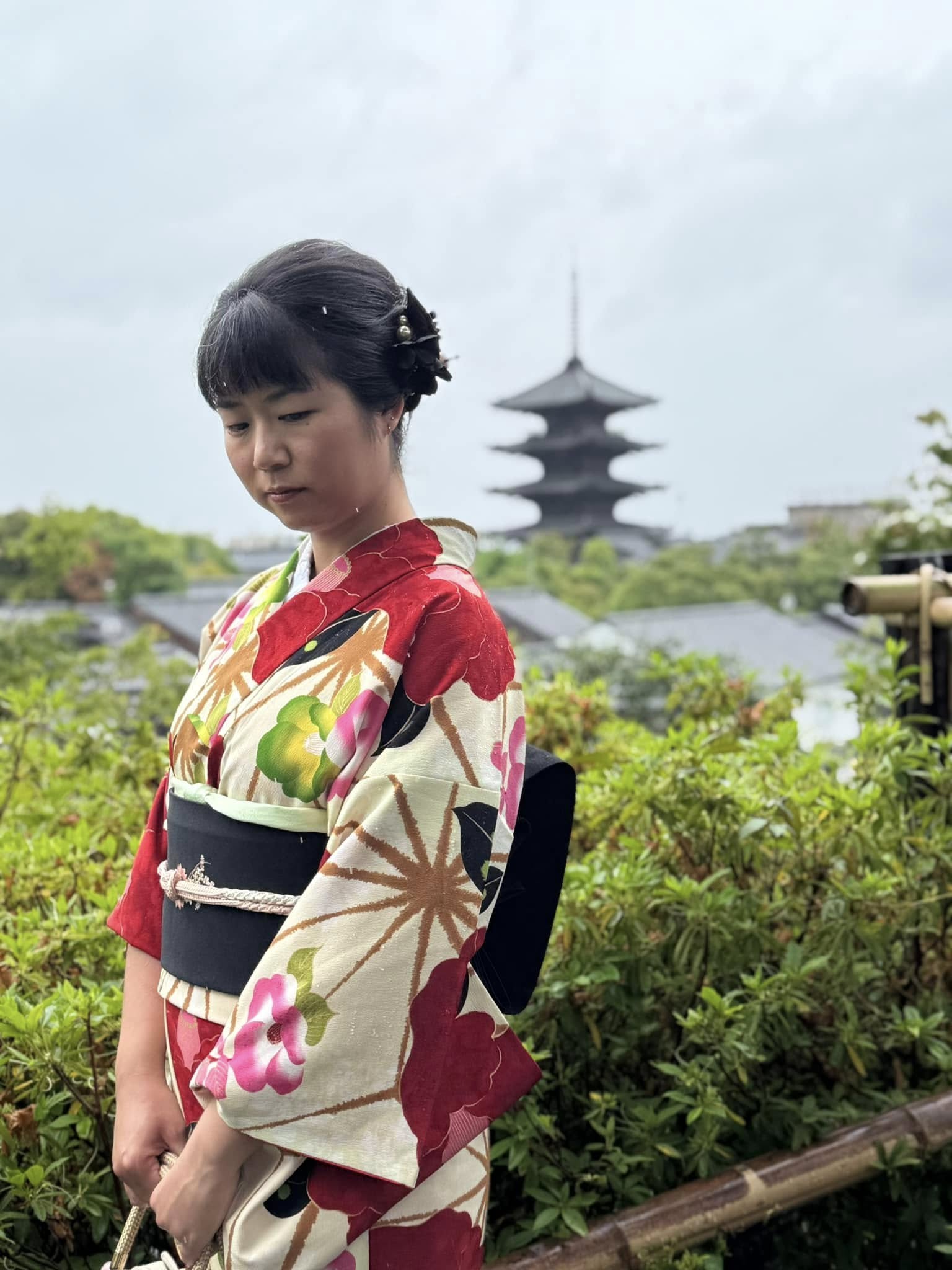
Soaking in an onsen at 5am, going up the beautiful mountains of Hakone, then hurrying back into the onsen one last time at night and staying until 1am:
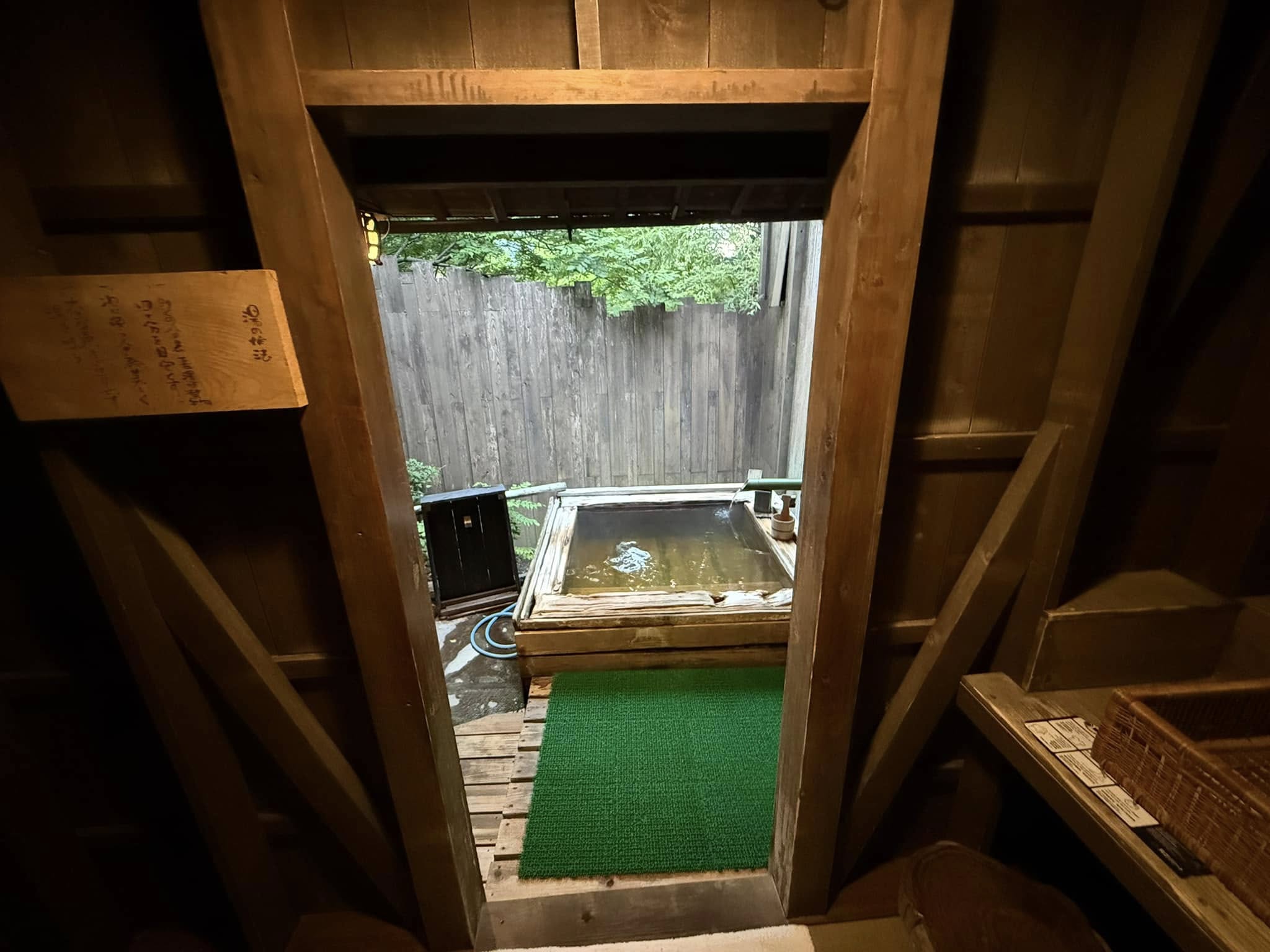
Experiencing science fiction/fantasy come to life in reality at teamLab Planets Tokyo:
And going nuts on a shopping spree in Shibuya:
Best watched while listening to Nujabes! Never realized until after this trip how well his music captures urban youth vibes in Japan.
All of it was just so fun, relaxing, and, as a result, rejuvenating. I was hoping Japan would help cleanse more of the grief I was struggling with after IVF, and, thank God, it truly did. It’s both strange and energizing to know that something fun like a trip can act as a kind of bookmark in life, separating a darker chapter from a lighter one. The thoughts in my head and the feelings in my heart both seem to shine brighter these days.
Trips, and in particular international trips, also tend to change me as a whole. Each time I’ve come back from exploring a foreign country, I’ve come back feeling edified.
When I traveled throughout London on my own back in 2019, I was able to go in person to all the literary mecca sites that nerdy English majors like myself had only ever read about in school. Actually seeing the stone, smelling the unique scent that only centuries-old churches can carry, going to the graveyards and execution sites, the British Museum, the Old Globe, walking by the Thames, climbing to the top of St. Paul’s … it was like putting a face to a name at last. I realized even more how the Old World has been built on so much more for so much longer than the States, and while something a few centuries old feels like an artifact to me, for citizens of Old World countries, the same “artifact” is often just that one random object everyone knows is from the twelfth century and somehow survived the Blitz but is now kept in the back of the church with a bunch of other items that could be just as old for all we know. My small world widened after my trip to the UK.
When I traveled to Paris, I realized that high fashion isn’t rich people going crazy in clothes but an abstract art. I learned more deeply the importance of grooming myself, how to dress myself, how to be dignified, the need to maintain decorum and know my manners, and, of course, the creativity and genius that can be found in the culinary arts. (Who knew salads could actually be delicious?)
Point is, each international trip I’ve taken has been eye-opening in one way or another, and Japan was no exception. 99% percent of the people I saw or interacted with were extremely - and I mean extremely - polite. The whole notion I had of Japanese people being strict with decorum and sticking to the rules of formality even unto death with samurai-like honor and discipline was not that far off. No matter how rude foreigners were, no matter how much the hordes of tourists laid waste to good Japanese manners and romped through the streets like savages, the people of Japan never, ever stooped to the same level, even when I felt like they had every right to. (A very kind bus driver refused to go past a stop he knew we’d wanted and instead, stopped the whole bus and kept trying to tell us over the intercom in very gentle Japanese that this is where we should get off. Like, who does that?! Any old American bus driver would have just shrugged and driven off.)
Also, I don’t understand any Japanese, but you don’t always need to understand a language to know what’s being said, and in comparison to Americans, Japanese people really do know how to put up, shut up, and just do the one job that they were given to do. Which is amazing considering both the standard of work ethic and the level of detail that was expected and upheld wherever I went. Everything from convenience store food to subway seats have such a specific, intentional design that’s thought out to the last concern you could possibly have. And, of course, the cheerful and actually helpful service employees would supply at nearly all the stores I visited contrasted so sharply with the uncommitted and disgruntled employees I’m used to in the States. Everywhere I looked, everywhere I went, I could see a hard-working mind whirring away in the background in some shape or form.
The only people who would grumble and complain about things tended to be old, crotchety grandpas working in some kind of public transportation office and, ironically, on the complete opposite side of the spectrum, young women in their 20s. Besides those two groups, I really couldn’t see anyone grumbling about anything, which was such a refreshing change of pace in comparison to us Americans, who often complain and complain about the most first world of first-world problems.
Being immersed in such a culture inspired me to be better too and dispelled certain doubts I’d been struggling with lately. I no longer think I’m being “too detailed,” whether it’s with cleaning the house or my writing projects. Being detailed is a good thing and can truly bring out the beauty in whatever you’re doing. I’d been driven into a slump after IVF and started finding things like cleaning and organizing the house to be depressing, energy-sucking tasks. Now, however, I’ve remembered the importance of maintaining good order in my own house and have been doing all the much-needed cleaning I’d been too tired or lazy to do the past several months. I feel inspired to work harder in all areas of my life after seeing how hard all of Japan works without complaint day in and day out. I’ve been reaffirmed through first-hand witnessing that hard work is good work and that there is freedom in discipline. I’ve also been reminded that to be polite and gentle, even when faced with rudeness, is not a weakness but simply a standard that is good to keep.
But I was also reminded of the need to relax and how it’s okay not to strive for balls-to-the-wall work ethic all the time or to keep utter perfection as my standard. In the two weeks that we were traveling, we were stalled at a train station not once but twice due to a “human accident” up ahead at a different station. As it turns out, a “human accident” is exactly what it sounds like: a suicide. I’m sure most of the world has heard, at least a little, how stressed out Japan is because of some of the more vicious parts of its cultural and professional expectations and obligations. I couldn’t help but wonder if people would actually be happier instead of just looking happy if they were allowed to breathe a little more often and relax some standards once in a while.
I remember seeing a young woman on a bullet train who had so many self harm marks, some of which were obviously fresh. In that moment, I wished I could speak Japanese just so I could walk past her and pretend to notice her Sanrio phone charm and tell her how cute it was and how she has good taste. I wonder if a comment like that to a girl like that would be out of place in Japan. I wonder how many more young women like her are going about their daily routines in Japan this very moment and how many of them are utterly alone despite living in a sea of people.
I saw a lot of lost youth in general, from a random, tattooed-up young man dancing madly to his own tune on the streets of Shibuya, to girls dressed in harajuku fashion, handing out fliers and trying to flirt their way into making men pay attention to them, all so that they’d take a piece of paper out of their hands. Their colorful dresses were dirty because they were too poor and too young to understand the importance of drycleaning. I wanted to yell at them to go back to school, that they were ruining their lives, that they could be so much more than this. But I also wondered if they even had homes to go back to and study in.
I meditated on the growing conviction that although cultures may be unique and some countries economically richer than others, all human societies, to some extent at least, share the same problems. How do you inspire and encourage youth? How do you balance the need to work hard and the need to rest? How do you help your people to connect with one another, to not feel so alone? There really is no such thing as a perfect or even, perhaps, a great nation once you peel back the gilded layers and examine the conditions of the human heart.
I’m not sure if it was these exact thoughts that led to the most important thought I brought back with me from Japan. Perhaps my most important thought came to me in hazy waves of realization as I soaked in hot springs at midnight, praying and meditating, watching the white steam rise and swirl above the yellow waters. Or maybe it was as I gazed at all the peridot beauty of the mountains in Hakone and or the green palace of bamboo in Kyoto or the wide Hozugawa river, where turtles sunbathed, cranes skimmed, and deer grazed.
Maybe the thought pieced together as I drank alcohol for the first time with my inlaws at a poppin’ yakitori and we all stuffed our faces with jumbo shrimp that sold at just 99 yen per pop. Maybe it was the way in which my father in law made the family stop taking pictures of me in my kimono before padding over to me and very gently straightening out my sleeve before allowing pictures to commence again. My own father has never shown me such a sweet and gentle gesture before.
Or maybe it’s the fact that Albert’s side of the family is generally much more at peace with one another and actually tries to get along, making the whole trip that much more pleasant, whereas my family would have exploded at one another halfway through the first day and gone our separate routes in stony silence for the rest of the trip. Maybe the thought firmed within my mind and heart just from the nature of traveling with family and having such a fun time with them for two weeks straight so that I grew closer to each member. By the end of the trip, I even felt comfortable poking my father in law awake as he dozed off in his chair. He woke up and chuckled as he saw that it was me.
I don’t know what exactly it was, but the most important thought I brought back with me from Japan was that I didn’t need fame and fortune to be happy.
Some of you who have followed me for a while may have heard me mention how much of an identity crisis I could have when thinking of fame and fortune. Because of all the big, traumatic events that happened in my past as well as my own desire for perfection, I felt that if I didn’t become rich and famous someday, I’d prove myself to be a nobody and my significance would be reduced to nothing.
I started fighting the temptation to think like this more and more as the years wore on, though, especially because, as a Christian, I know that God loves me just because I’m me and that in the end, when I die and stand before God, I can’t take all my riches and accomplishments with me to prove anything. But even though I knew this, there were many times it was hard to truly believe in it, to feel confident in a way that I knew my thoughts were built upon stone and not sand. Of course, the loss of my children last year, really helped me to put things even more into perspective and put more of my crazed ambitions to rest. But something about Japan really drove the message so deeply into my heart that there really is a solid feeling of assurance within me now. If the sorrows of last year got the wheels turning, the joys of this vacation helped them whir fully into life.
Spending so much time with family, making happy and peaceful memories together, and simply being in Japan made me realize and truly believe that I really do have a great life already. For goodness sake, I’m in Japan! Shopping my butt off in Shibuya, wearing Kimonos in Kyoto, taking Instagram-friendly photos at the Inari arches, eating mind-blowing seafood, drinking just as mind-blowing sake, going to a World Expo, which happens only once every 5 years internationally. How many people in this entire world can say that they’ve done even a few of those things? And I’m doing it all with my family, who isn’t fighting or grumbling but is happy to be with me and each other.
I have everything I need in life, and if that’s the case, why do I need fame and fortune to be happy? I’m already happy! After Japan, I finally feel totally okay with just being happy and satisfied with my life. I can finally say I’m good without fame or fortune.
And I really mean it. Just the past day, I heard back from a professional reviewer regarding my book. I was somewhat shocked to see that despite being from a big - if not the biggest - book reviewing authority in the publishing industry, my reviewer gave my book a glowing review. In the past, I would have seen this as a sign that bigger things were ahead and that the stars were finally aligning and that I would finally achieve what I’d always been born to do, what I’d meant to achieve all along despite all the horrible things that have happened in the past, something that would give all that suffering meaning. I’d see it as a sign of fame and fortune to come.
But now, strangely enough, I was able to curb the temptation to think in such a way. Don’t get me wrong. I am grateful and thrilled about the review. I had an adrenaline rush for days after reading it. And, sure, it could be a sign of good times ahead. But even if it’s not, I’m confident that I wrote a good book with or without good reviews. I’ve learned so much about myself and life in general just from the process of writing. And even if the book doesn’t amount to all that much, I am happy and satisfied with my life because I lead quite a good life already.
It’s a blessing enough to be able to travel to a foreign country not just once but regularly throughout my life. I have not just one but several people who love me and care about my well-being, and I already have and will continue to create happy memories with them. I have the health and time to write books at all.
I have a good life already. It’s okay to turn off my survival mode and accept that right now is enough not only to get by on but also to be safe and satisfied with. I am allowed to be satisfied with my life and, at last, thanks to my travels in Japan, I know I am.
